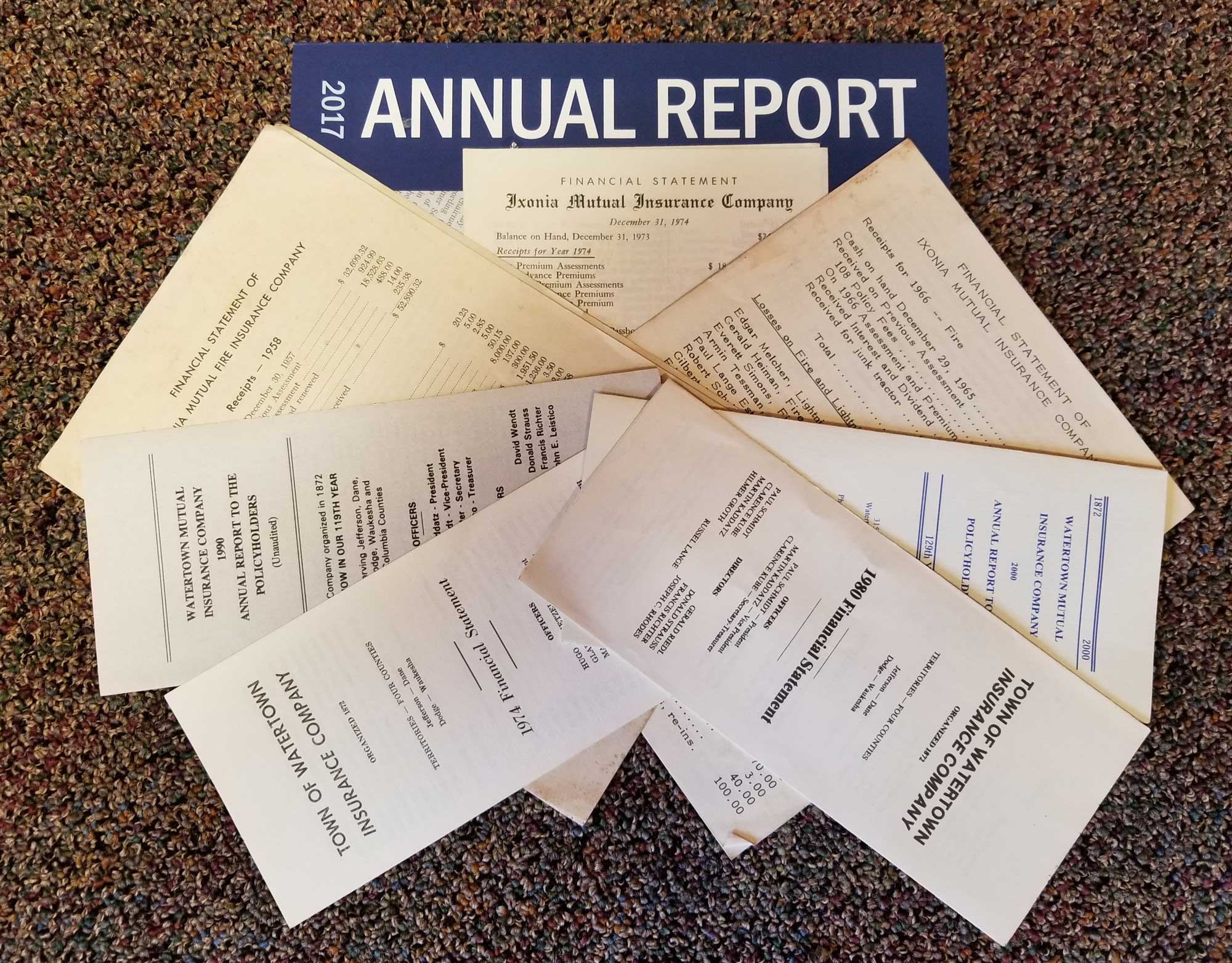
By HOWARD WIEDENHOEFT
Forward Mutual recently held its annual policyholders meeting and, as is done every year, CEO and President Lois Wiedenhoeft and our CPA discussed its financial report. While often referred to as dry subject matter, an accounting of the year’s financial activity is an important story of the mutual’s strength and security.
Here is a bit of accounting history and changes along the way
For the first 70 years of their operation, Ixonia Mutual Insurance Company and Watertown Mutual Insurance Company both charged their policyholders a post assessment for each loss as it occurred. During the 1940s, mutuals increased their coverage to include supplemental perils, hail, theft, and vandalism. Of course, this increased their coverage costs as well. To compensate, both Ixonia Mutual and Watertown Mutual began charging their policyholders an annual policy premium; that is, they charged in advance for the claims they expected in the upcoming year.
Comparatively speaking, keeping the books during these first one hundred years was fairly straightforward. The accounting was done on a cash basis, meaning the treasurer recorded revenue as it was received and expenses as they were paid. Both Ixonia Mutual and Watertown Mutual and their policyholders could easily note their financial strengths simply by the amount of assets.
Assembly Bill 296
All this changed in 1967, when Wisconsin Legislative Bill 296 allowed mutuals to write packaged insurance policies. These new policies required policyholders to pay “advanced premiums.” This meant they paid on the date the policy was written and it covered their property for the next 12 months.
In 1968, Watertown began writing packaged policies and used advance premiums for these specific policies. Eight years later it converted all its policies to advance premium (coincidently, way back in 1939 the mutual’s Secretary Lehmann suggested using advance premiums, however at that time they were not allowed by law).
Ixonia Mutual began writing packaged policies in 1969 and right away it converted all its policies to advance premium. Interestingly, some Wisconsin mutuals continued to use post assessment on their non-packaged policies into the late 1990s. Today, all mutual insurance companies use advance premiums.
Changes in Accounting
So, in the late 1960s, Ixonia Mutual and Watertown were both collecting premiums in advance of the policy’s twelve months of coverage. What happened if a policyholder cancelled before its anniversary date? When that happened, the remaining premium was reimbursed and it created an “unearned premium.” Suddenly, accounting was no longer straightforward and both mutuals needed to change their system.
With the advent of unearned premiums, accounting shifted to an accrual basis, a system in which both revenue and expenses are recognized as they occur, rather than when paid. This required an accounting of liabilities, including unearned premiums and unpaid losses. In 1973, for the first time, the state annual report included a line for unearned premiums.
Under the accrual basis of accounting the policyholder surplus became the key indicator of a mutual’s strength. In 1967, state law required mutuals have at least $100,000 of surplus to write package policies. This was not an issue for Ixonia Mutual or Watertown Mutual, as they both had a surplus over $250,000.
Forward Mutual Today
Today, surplus continues to indicate a mutual’s strength. At our recent annual meeting, Kathe Kuna, CPA, of CliftonLarsonAllen LLP, spoke of Forward Mutual’s strong financial standing amongst its peers throughout the state. With a surplus of $6,983,086, Forward Mutual looks ahead to a strong and secure future.
Read more!
Comparing the Capitalizing of Two Early Mutuals
Supporting Dairy in the Late 1800s
1879 Early Challenges for a Young Mutual
Ixonia Mutual’s First $1000 Loss
1885 A Year of Neighbor Helping Neighbor
Taxes, War and the English Language
Supporting the Community’s Fire Protection
Board Directors and Their Meetings
Standardization of Wisconsin Mutuals
Of Electricity, Radio and Foxes
Our Annual Meetings Over the Years
How a Major Disaster Affected Extended Coverage and Reinsurance
Surviving the Big Dogs in the 1960s
Introducing Agents to the Mutuals
Establishing Confidence in Financial Strength
The 1990s, Advancement and Angst
Ixonia Mutual and Watertown Mutual Merge and a New Company is Formed